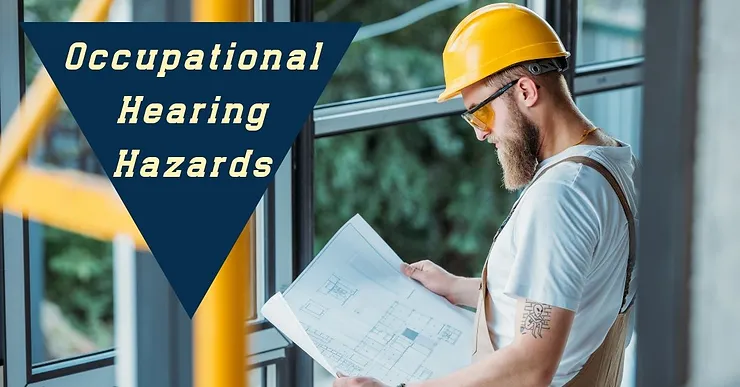
Every year, 22 million employees are subjected to harmful noise in the workplace, which can result in permanent hearing loss, according to the Occupational Safety and Health Administration (OSHA). Although some types of hearing loss are caused by almost unavoidable factors like aging, hearing impairment from excessive noise at work is completely preventable.
The limits of your ears
How do you know when the noise is too loud at work? The National Institute for Occupational Safety and Health (NIOSH) advises that noise exposure levels of 85 decibels (dB) should not exceed 8 hours. This is about the same level as the noise of heavy urban traffic.
Noises that exceed this limit include heavy machinery, nightclub music, a class of noisy children. That is why industries most at risk of hearing loss include construction, entertainment, education and farming. Louder sounds make it more likely that you will sustain damage to your hearing. Even a few minutes or an hour of exposure to these loud noises can lead to temporary hearing loss or tinnitus.
Protecting your hearing health since 1970: The Occupational Safety and Health Administration (OSHA)
OSHA is a U.S. Department of Labor agency with the task of ensuring workplace safety. Among the many workplace dangers facing American employees, exposure to harmful noise is a significant priority for the government body. They have the legal authority to hold employers accountable when workers’ health is endangered. Failure to comply with OSHA rules is costly; last year U.S. companies paid $1.5 million in penalties.
The next time you’re at work, download a noise-reader app on your phone, and hold it up to some of the louder sounds. If you are exposed to sounds above 85dB for an eight-hour work day, without hearing protection, then you should speak to your employer.
What are my rights at work when it comes to noise?
OSHA has laws governing the management of noise levels in the workplace which state that employers are responsible for creating a working atmosphere which isn’t ‘likely to cause death or serious physical harm to his employees’.
In order to ensure your employer follows these guidelines, you have the right to:
-
Obtain information and training on workplace health risks.
-
Obtain health records so that you may see if anyone else has developed hearing loss during their time at the company.
-
Make a complaint and ask OSHA to inspect your workplace if you think that noise in the workplace is a health hazard and your employer does nothing to tackle it. You can expect protection from dismissal as a result of such a request.
OSHA’s noise restrictions are even more stringent when you work in the construction industry. Noise exposure should be restricted to 8 hours a day if you are subjected to 90dB or above. If the sound hits 105dB, then this noise should be restricted to just one hour a day.
If the employer is unable to limit sounds in this way, the worker must be supplied with hearing protection free of charge, and be given advice on how to best use it to minimize damaging their hearing.
Be your own advocate
Although OSHA is liable to protect American employees, they are unable to avoid all dangers faced by employees at work. Many workplaces have hazards that are either unaccounted for or unreported to OSHA.
It is up to you to campaign for your own workplace hearing protection. You are in the best position to identify the risks, and know when the hearing loss is loud enough to be damaging, and you are the one who stands to lose if you do nothing about it. Luckily, you live in a country with strong institutions, enforced laws and cutting-edge technology, putting you in the best position to protect your hearing at work!
Clear Hearing and Audiology
While many employers provide hearing protection, investing in your own custom hearing protection will provide you with the best protection and most comfortable fit. Our custom hearing protection is shaped to mold to your specific ear canals. Contact us today for more information.
